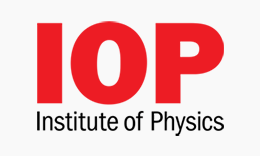Engineering Physics (with integrated year in industry) Code 179G Attend an Open Day Attend an Open Day Clearing places available – 0800 121 40 80
Apply NowYou are viewing this course for September start 2024
Key Facts
179G-
UCAS Tariff
120 - 112
-
Course duration
4 years
Further details on entry requirements
Apply NowEngineering Physics (with integrated year in industry) at Aberystwyth University applies physical principles and techniques to engineering and technology. The degree combines the knowledge, training and skills of a discipline in Physics with the production of engineering solutions in real-world situations.
You will spend a year working in industry during your third year, which will give you a head start in your chosen career and allow you to develop the core skills that employers want, allowing for a smoother transition from campus to career.
Even though it is one of the oldest academic disciplines, Physics makes significant contributions to modern society, with theoretical breakthroughs that feed into new sciences and foster modern technologies. The degree is accredited by the IOP (Institute of Physics).
Course Overview
Modules September start - 2024
Please note: The modules listed below are those currently intended for delivery during the next academic year and may be subject to change. They are included here to give an indication of how the course is structured.
| Module Name | Module Code | Credit Value |
|---|---|---|
| Algebra and Differential Equations * | PH16210 | 10 |
| Calculus * | MP10610 | 10 |
| Communication and Technology | PH19510 | 10 |
| Dynamics, Waves and Heat * | PH10020 | 20 |
| Electricity, Magnetism and Matter * | PH11120 | 20 |
| Further Algebra and Calculus * | MP11010 | 10 |
| Laboratory Techniques for Experimental Physicists and Engineers (20 Credits) * | PH15720 | 20 |
| Modern Physics | PH14310 | 10 |
| Physics Career Planning and Skills Development * | PH12910 | 10 |
| Module Name | Module Code | Credit Value |
|---|---|---|
| Electricity and Magnetism * | PH22510 | 10 |
| Mathematical Physics * | PM26020 | 20 |
| Numerical Techniques for Physicists | PH26620 | 20 |
| Optics | PH22010 | 10 |
| Practical Research Skills * | PH25720 | 20 |
| Principles of Quantum Mechanics | PH23010 | 10 |
| Sensors, Electronics & Instrumentation | PH24520 | 20 |
| Thermodynamics | PH21510 | 10 |
| Module Name | Module Code | Credit Value |
|---|---|---|
| Year In Industry | PHS0160 | 60 |
| Module Name | Module Code | Credit Value |
|---|---|---|
| Concepts in Condensed Matter Physics | PH32410 | 10 |
| Engineering Control Theory | PH33310 | 10 |
| Particles, Quanta and Fields | PH33020 | 20 |
| Professional Skills in Engineering | PH38210 | 10 |
| Project (with project management) * | PH37040 | 40 |
| Semiconductor Technology | PH33610 | 10 |
| Systems Engineering | CS33020 | 20 |
* Also available partially or entirely through the medium of Welsh
Careers
Teaching & Learning
Typical Entry Requirements
UCAS Tariff 120 - 112
A Levels BBB-BBC to include B in Physics and B in Mathematics
GCSE requirements (minimum grade C/4):
English or Welsh and Mathematics
BTEC National Diploma:
DDM-DMM with B in A level Physics and B in Mathematics
International Baccalaureate:
30-28 with 5 points in Physics and Mathematics at Higher Level
European Baccalaureate:
75%-65% overall with 7 in Physics and Mathematics
English Language Requirements:
See our Undergraduate English Language Requirements for this course. Pre-sessional English Programmes are also available for students who do not meet our English Language Requirements.
Country Specific Entry Requirements:
International students whose qualification is not listed on this page, can check our Country Specific Entry Requirements for further information.
The University welcomes undergraduate applications from students studying the Access to Higher Education Diploma or T-level qualifications, provided that relevant subject content and learning outcomes are met. We are not able to accept Access to Higher Education Diplomas or T-levels as a general qualification for every undergraduate degree course.
Our inclusive admissions policy values breadth as well as depth of study. Applicants are selected on their own individual merits and offers can vary. If you would like to check the eligibility of your qualifications before submitting an application, please contact the Undergraduate Admissions Office for advice and guidance.

